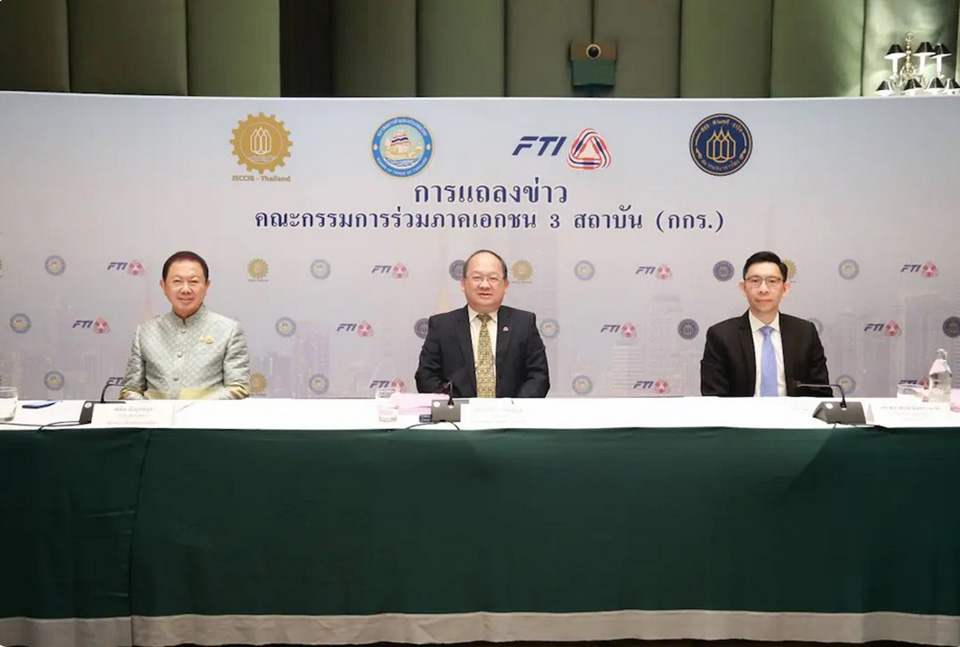
BANGKOK, Thailand – The Joint Standing Committee on Commerce, Industry, and Banking (JSCCIB) has warned that while Thai exports to the U.S. could rise, the influx of Chinese goods may disrupt local industries. The committee has called for a joint task force with the government to formulate countermeasures and enhance trade negotiations with the U.S. to protect Thai businesses from escalating global trade tensions.
Kriangkrai Thiennukul, Chairman of the Federation of Thai Industries, noted that ongoing trade disputes among the U.S., Mexico, Canada, and China could slow global economic growth in 2025, with even greater risks by 2026. Thailand’s economy faces limited expansion, pressured by strong trade barriers, a strong baht, and increased foreign competition. To counteract these challenges, the country must attract foreign direct investment (FDI), which reached a 10-year high of 1.14 trillion baht in 2024, and expand trade agreements, including one with the Thailand-European Free Trade Association.
A study by the Ministry of Commerce highlighted that several Thai industries face high risks due to trade shifts. These include steel, plastics, electrical appliances, dietary supplements, textiles, glass, and cosmetics. The private sector is concerned that excess goods from global supply chains could flood Thailand’s market, undercutting local production and employment.
To mitigate these risks, the committee proposed several strategic measures. These include appointing trade lobbyists to negotiate with the U.S., strengthening ASEAN economic cooperation, and enhancing legal protections for Thai businesses facing foreign trade restrictions. Additionally, they recommended supporting domestic industries through industrial reforms, stricter trade policies, and expanding the Made in Thailand (MIT) certification program to promote local products.
Despite uncertainties, the committee upheld its 2025 economic growth forecast at 2.4–2.9%, with exports expected to rise by 1.5–2.5% and inflation projected at 0.8–1.2%. The private sector remains focused on stabilizing Thailand’s economy, ensuring local industries remain competitive, and positioning the country to benefit from global trade shifts. (NNT)










